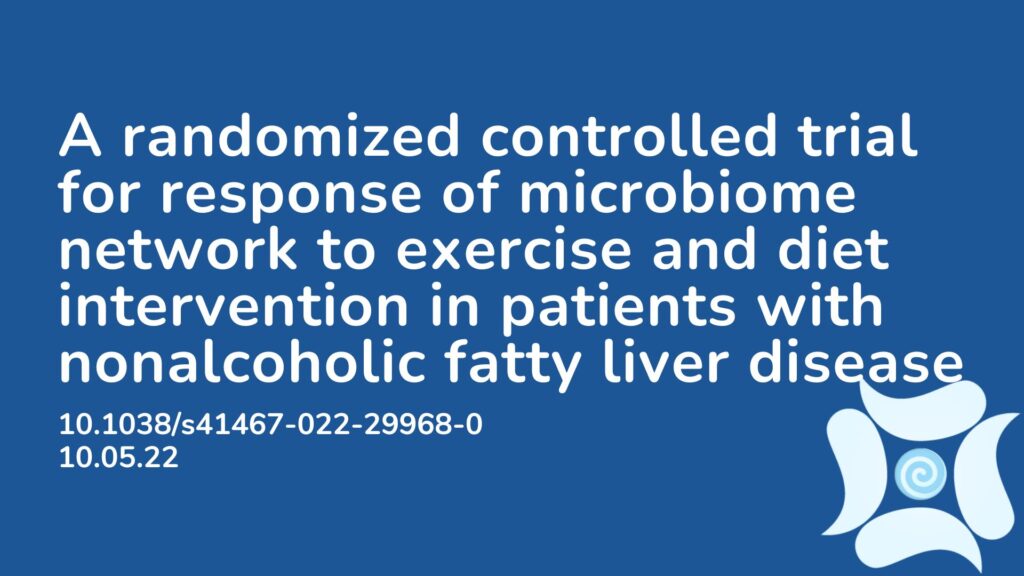Summary: Nonalcoholic fatty liver disease (NAFLD) is the most common disease of the liver, with prevalence estimated to be up to 45% of the global population. This randomised controlled trial aimed to assess the efficacy of exercise and a fibre enriched diet in patients diagnosed with NAFLD. The results showed that aerobic exercise combined with a fibre enriched dietary intervention was associated with a diversified population of microbial organisms. It also showed that independently, exercise and a dietary intevention increased the communication and connectivitiy between these organisms. The human microbiota has previously been targeted as a potential treatment area for NAFLD due to the large role it plays in metabolic health. Data is also demonstrating that dysbiosis of the human digestive microbiota is correlated with NAFLD. With all this in mind, this paper provides an exciting area for future research, as it implies that dietary and exercise interventions have a positive impact on our microbiomes, which then has positive impacts regarding metabolic health outcomes. In addition, the researchers found that not all of the participants responded to the interventions in the same way, implying that microbiome specific treatments may be the best way to target research for the future. The researchers also elucidate that baseline microbial diversity should be understood before proceeding with research regarding human health in the future. The paper also showed that there were no adverse effects associated with these interventions – meaning they are an incredibly safe and effective way to manage NAFLD moving forward.
Abstract: Exercise and diet are treatments for nonalcoholic fatty liver disease (NAFLD) and prediabetes, however, how exercise and diet interventions impact gut microbiota in patients is incompletely understood. We previously reported a 8.6-month, four-arm (Aerobic exercise, n = 29; Diet, n = 28; Aerobic exercise + Diet, n = 29; No intervention, n = 29) randomized, singe blinded (for researchers), and controlled intervention in patients with NAFLD and prediabetes to assess the effect of interventions on the primary outcomes of liver fat content and glucose metabolism. Here we report the third primary outcome of the trial—gut microbiota composition—in participants who completed the trial (22 in Aerobic exercise, 22 in Diet, 23 in Aerobic exercise + Diet, 18 in No Intervention). We show that combined aerobic exercise and diet intervention are associated with diversified and stabilized keystone taxa, while exercise and diet interventions alone increase network connectivity and robustness between taxa. No adverse effects were observed with the interventions. In addition, in exploratory ad-hoc analyses we find that not all subjects responded to the intervention in a similar manner, when using differentially altered gut microbe amplicon sequence variants abundance to classify the responders and low/non-responders. A personalized gut microbial network at baseline could predict the individual responses in liver fat to exercise intervention. Our findings suggest an avenue for developing personalized intervention strategies for treatment of NAFLD based on host-gut microbiome ecosystem interactions, however, future studies with large sample size are needed to validate these discoveries. The Trial Registration Number is ISRCTN 42622771.
Article Publication Date: 10.05.22
DOI: 10.1038/s41467-022-29968-0



